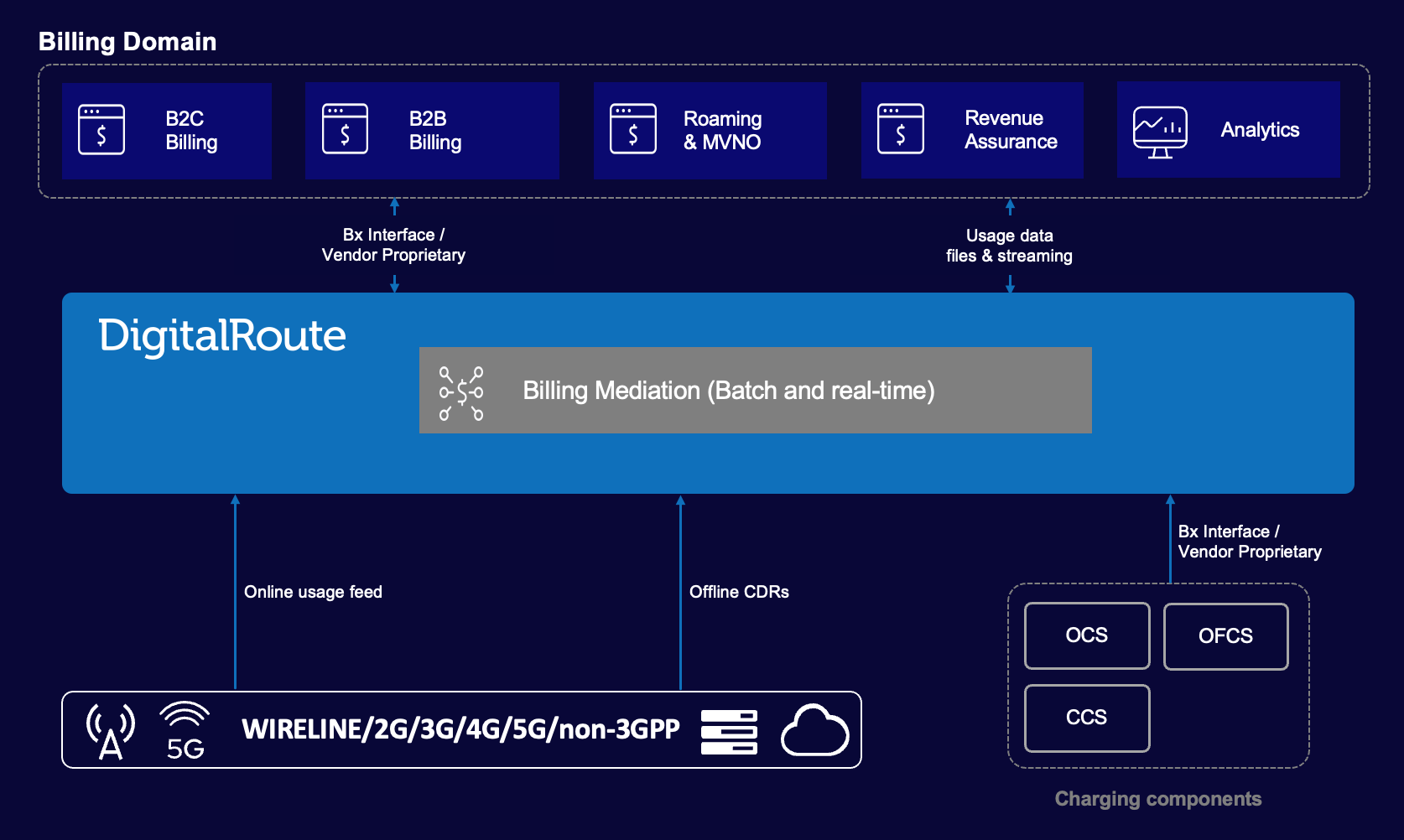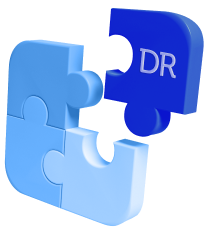Billing Mediation
Turning Complex Data into Billing Accuracy and Revenue Assurance
Billing mediation is essential for managing the growing complexity of telecom ecosystems. It ensures that all usage data—from voice, messaging, data, IoT services, and third-party integrations—is accurately collected, processed, and formatted for billing systems. For Communication Service Providers (CSPs), this guarantees precise billing for both end customers and partners, even in the most complex environments.
Key Challenges CSPs Face in Modern Billing
As telecom services evolve with 5G, IoT, and cloud-native architectures, CSPs encounter unprecedented complexity and data volume. Common challenges include:
- Fragmented Data: Inconsistent data formats from diverse sources, such as partner networks and IoT platforms.
- Real-Time Demands: Increasing pressure to deliver usage insights and billing in real-time.
- Compliance Pressures: Meeting stringent regulatory requirements while ensuring billing transparency.
- Partner Ecosystem Integration: Managing and reconciling data across expanding third-party ecosystems.
These challenges require accurate, scalable billing mediation to ensure operational efficiency, protect revenue, and maintain customer trust.

How DigitalRoute Helps CSPs Simplify Complex Billing Processes
With over 20 years of telecom data mediation expertise, DigitalRoute helps CSPs overcome billing complexities with ease.
Transforming Telecom Billing with Proven Capabilities:
- Seamless Data Integration: Consolidate and normalize fragmented data from diverse sources into consistent formats for accurate billing.
- Real-Time Charging and Insights: Enable low-latency data processing for dynamic pricing and real-time usage billing.
- Revenue Assurance: Capture and reconcile all billable events, preventing revenue leakage and disputes.
- Scalable Performance: Process billions of transactions daily, meeting the demands of expanding telecom services and data volumes.
- Regulatory Compliance: Ensure transparent, auditable billing processes that align with global standards.
Trusted by leading CSPs worldwide, DigitalRoute ensures billing mediation becomes the foundation for managing partner billing, revenue-sharing models, and next-generation services.
Delivering measurable outcomes for CSPs
- Customer Trust: Deliver error-free, transparent bills that build loyalty and reduce disputes.
- Improved Accuracy: Eliminate billing errors and disputes with precise data processing and validation.
- Faster Billing Cycles: Accelerate cash flow with automated, streamlined processes.
- Enhanced Revenue Assurance: Protect revenue streams by ensuring every billable event is captured.
- Scalable Operations: Handle increasing service complexity and growing data volumes with confidence.
- Regulatory Confidence: Ensure compliance with privacy and security standards to avoid penalties.
Discover how DigitalRoute helps CSPs optimize billing processes, prevent revenue leakage, and ensure compliance with scalable, future-ready solutions.
Book an advisory sessionWhy DigitalRoute is Trusted by Global Telecom Leaders
CSPs worldwide rely on DigitalRoute’s expertise and innovative solutions to simplify complex data mediation across both Business Support Systems (BSS) and Operational Support Systems (OSS).
Here's why:
Proven Experience
Over 20 years of telecom data mediation expertise, trusted by global industry leaders.
Comprehensive Telecom Solutions
Tailored for both Business Mediation (BSS) and Operational Mediation (OSS), supporting usage data processing, network assurance, partner settlements, and service quality management.
Operational Reliability
Ensuring consistent, high-performance data processing at scale, managing billions of transactions daily with precision, scalability, and compliance.


